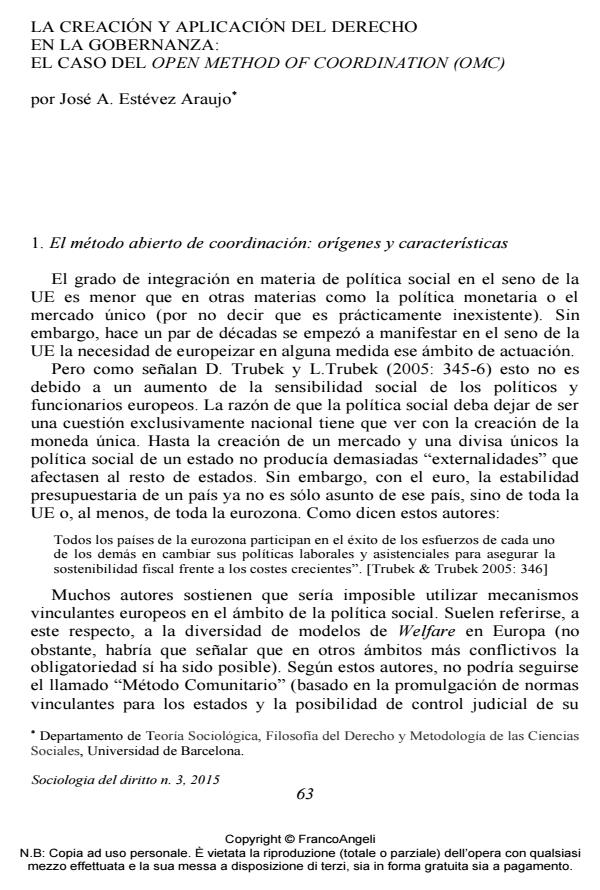Creating and applying law in governance: the case of the Open Method of Co-ordination (OMC)
Journal title SOCIOLOGIA DEL DIRITTO
Author/s
Publishing Year 2016 Issue 2015/3
Language Spanish Pages 17 P. 63-69 File size 189 KB
DOI 10.3280/SD2015-003004
DOI is like a bar code for intellectual property: to have more infomation
click here
Below, you can see the article first page
If you want to buy this article in PDF format, you can do it, following the instructions to buy download credits

FrancoAngeli is member of Publishers International Linking Association, Inc (PILA), a not-for-profit association which run the CrossRef service enabling links to and from online scholarly content.
The author analyses the characteristics and functioning of the European Union’s Open Method of Co-ordination. This is a mechanism whose purpose is to achieve mediation in social policy between EU member states, using soft law methods. The theoretical discourse around the OMC lionises its legitimacy, in terms both of its input (participation, transparency and responsibility) and of its output (effectiveness). The article maintains that the OMC’s real functioning reveals that it is a mechanism with a low level of effectiveness and serious deficiencies in terms of legitimacy. Finally, the author draws up some forecasts about the future of this mechanism of EU governance in the framework of the Europe 2020 strategy.
Keywords: Open Method of Co-ordination - Governance - Legitimacy - European Union - Social policy
, La creación y aplicación del derecho en la gobernanza: el caso del Open Method of Coordination (omc) in "SOCIOLOGIA DEL DIRITTO " 3/2015, pp 63-69, DOI: 10.3280/SD2015-003004